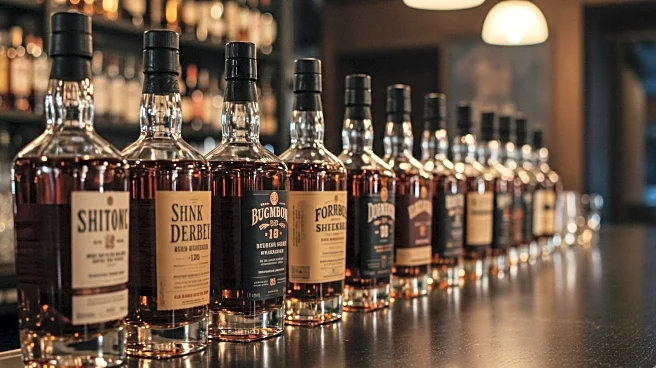What's Happening?
Canadian bars are facing a shortage of Kentucky Bourbon five months after Canada imposed a ban on U.S. alcoholic products. This move was a retaliatory measure against the Trump administration's imposition of 25% tariffs on Canadian goods. Bar owners, like Johnny Rafferty of Rose and Crown in Toronto, had initially stocked up on American whiskey, anticipating the trade conflict. However, supplies are dwindling, with Rafferty down to his last few bottles. The scarcity has led some establishments to increase prices for the remaining stock, treating it as a premium product. While Alberta has lifted the ban to facilitate trade negotiations, other provinces continue to enforce it, maintaining the pressure on local businesses.
Why It's Important?
The ongoing trade tensions between the U.S. and Canada highlight the broader economic impacts of tariff wars, affecting industries and consumers on both sides of the border. For U.S. bourbon producers, the Canadian market is significant, and the ban represents a substantial loss in sales. Canadian bars and consumers are also affected, facing higher prices and limited availability of popular American spirits. This situation underscores the interconnectedness of international trade and the ripple effects that policy decisions can have on local economies and businesses. The continuation of such bans could lead to long-term shifts in consumer preferences and supply chain adjustments.
What's Next?
The future of the ban depends on the resolution of trade negotiations between the U.S. and Canada. If tariffs are lifted, it could lead to a resurgence in the availability of American spirits in Canadian markets. However, if the trade tensions persist, Canadian bars may need to seek alternative suppliers or adjust their offerings permanently. The situation also places pressure on policymakers to find a diplomatic solution that addresses the concerns of both nations while minimizing economic disruption.










